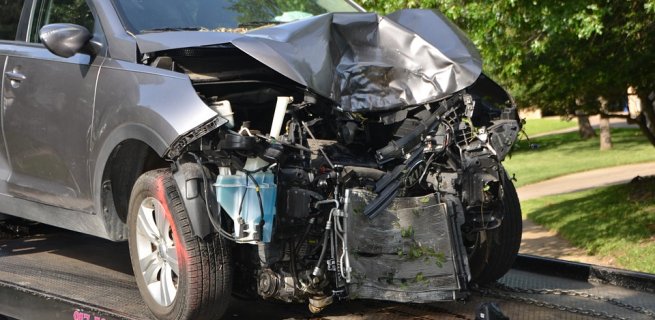In order to be found guilty, most offences require you to be conscious and acting voluntarily when you commit them. There are some exceptions to this rule, but dangerous driving is not one of them.
So what happens if you fall asleep behind the wheel and have a crash?
Clearly, you aren’t conscious or acting voluntarily while you are asleep, so does this mean you are innocent?
The Jiminez case
This was the position that Michael Jiminez found himself in when he had a crash while travelling from the Gold Coast to Sydney with friends in 1988. He was sharing the driving with the others so that they could drive through the night.
After snoozing during the start of the car trip, he took over driving at about 3:30 a.m.
At about 6 a.m., the car came off the road and collided with several trees. While Jiminez and two passengers in the back seats survived, the front passenger, who was not wearing a seatbelt, tragically passed away.
When interviewed by police, Jiminez explained that he had fallen asleep at the wheel. He thought that he closed his eyes “just for a second” before losing control of the car. He awoke to find that the the car was out of control before running into several trees.
Jiminez was charged with culpable driving (which has now been replaced by the similar offence of ‘dangerous driving’).
In Court
Jiminez was found guilty by a jury at trial; however, that conviction was overturned on appeal to the High Court.
The High Court found that it is necessary for the prosecution to prove both voluntariness and consciousness in order to establish guilt when it comes to a dangerous driving, and that it is not possible for a person to act voluntarily nor consciously while asleep.
The court, therefore, found that a person cannot be found guilty of dangerous driving just because they fell asleep at the wheel and had a crash; but rather, the manner of driving before falling asleep is crucial to that determination.
In the words of the High Court:
“Where the question is whether a driver who falls asleep at the wheel is guilty of driving in a manner dangerous to the public, the relevant period of driving is that which immediately precedes his falling asleep… The relevant period cannot be that during which the driver was asleep because during that time his actions were not conscious or voluntary.”
So, in order for Jiminez to be found guilty, the prosecution had to prove that his driving was a danger to the public because of his tired or drowsy condition. The court found that although warning signs of fatigue are relevant, the existence of those signs does not necessarily mean that someone is guilty. Rather, the question is whether the driver was so tired that, in the circumstances, he or she was a danger to the public.
The relevant facts in Jiminez were that he had four hours of sleep before the trip and a further three hours while another was driving, and that he did not feel tired. There was no evidence to suggest that Jiminez was tired, or that he had any warning of the onset of sleep, let alone that he was so tired that he presented a danger to the public.
Accordingly, the High Court found that it was open to the jury to find Jiminez not guilty, and that the trial judge had failed to properly instruct the jury in that regard.
Jiminez’s conviction was therefore overturned.
New trial?
The next question for the High Court was whether or not a new trial should be ordered.
The Justices ultimately decided that since Jiminez had already gone through the expense, stress and inconvenience of a trial – and there was no strong case against him, it would not be appropriate to order a new trial.
Jiminez is still the leading case when it comes to falling asleep at the wheel.
Criticism of the Jiminez decision
Police have complained that since of Jiminez in 1992, it has become much harder to convict drivers who fall asleep at the wheel.
NSW Police Sergeant Feenan has further claimed that, since the decision, any driver could simply say they had fallen asleep without warning, and use this excuse to escape a conviction.
But that is not necessarily the case, as the manner of driving and observations of the driver in the lead up to the collision can raise significant doubt that he or she was actually asleep at the time of the crash. Information given by the driver immediately after a crash may also be extremely important, as it was in the Jiminez case.
If you have fallen asleep at the wheel and are facing legal proceedings for dangerous driving, you should seek legal advice immediately. The penalties for dangerous driving can be harsh – especially if you kill or seriously injure someone.
An experienced criminal lawyer will be able to explain all your options, and help you to achieve the best possible outcome in your case.












I like to know my brother inlaw go into a accident 2 days ago he was a driver and 4 others in the same car 2 pass away. driver and 2 passages ok . He slept behind the wheel what is the bad and good of him. Thank you